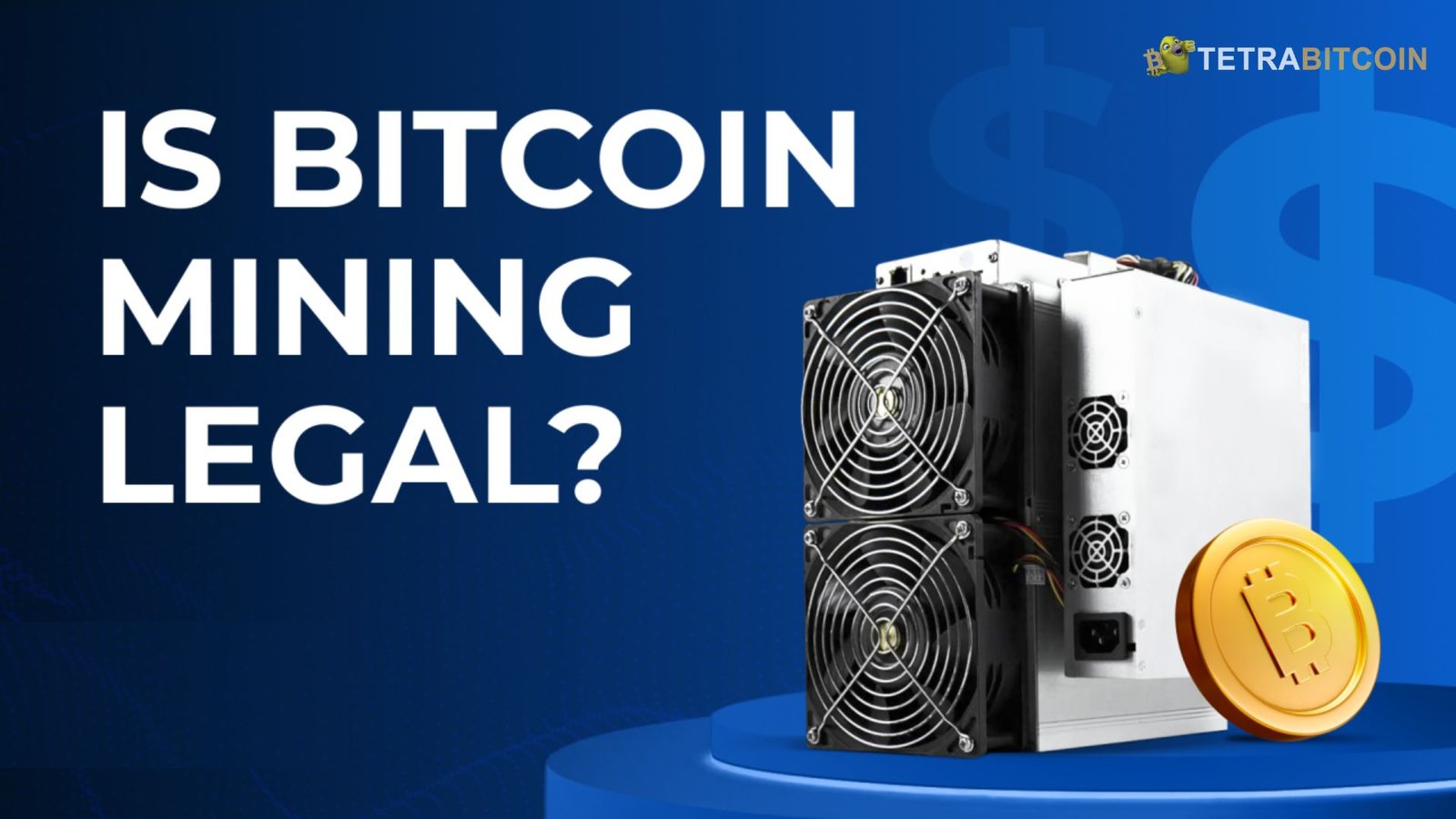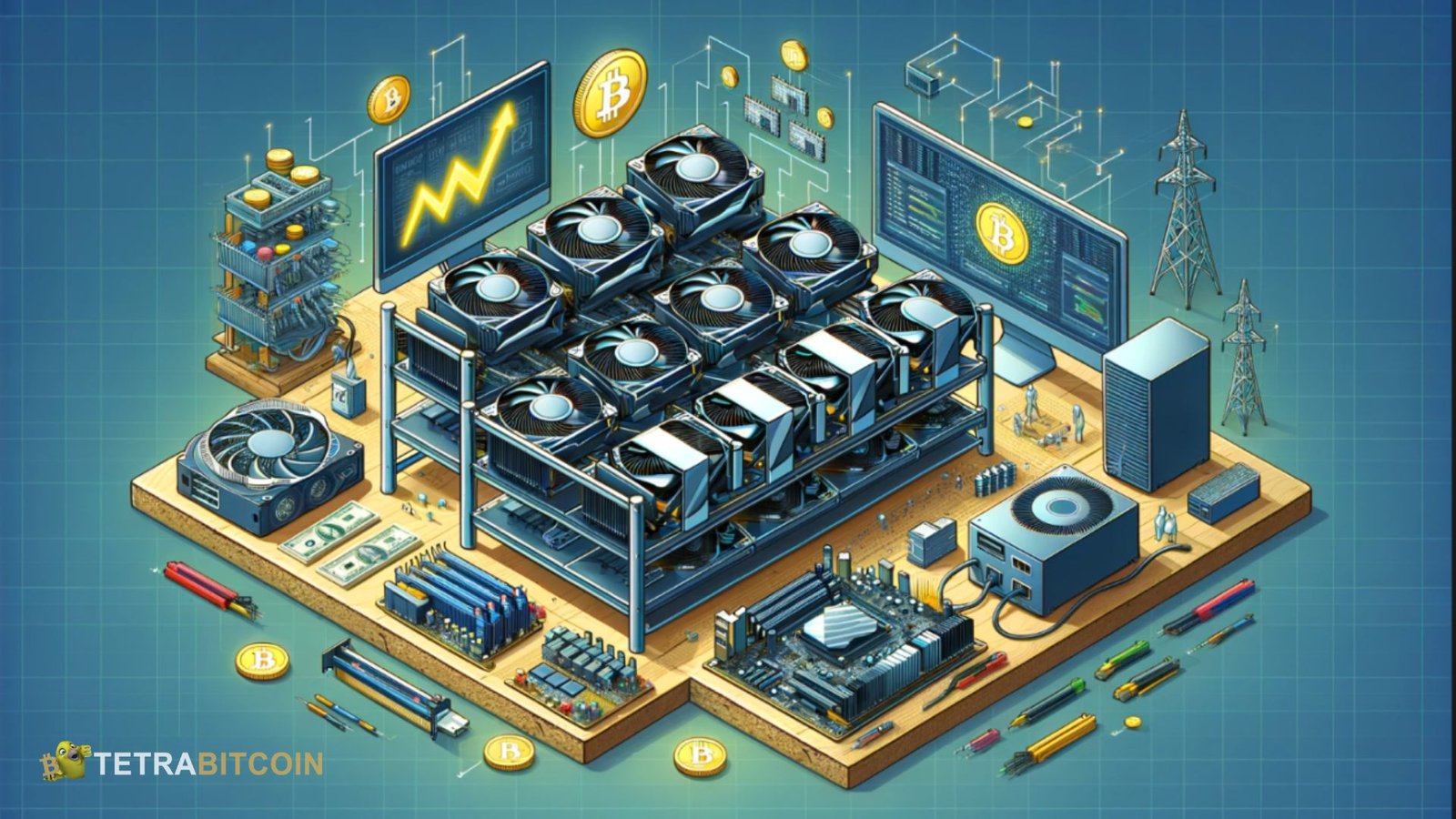Legit Bitcoin Mining: Since its launch over ten years ago, Bitcoin mining has seen significant innovation. It processes transactions and guarantees the network’s security, making it an essential component of the Bitcoin network. However, experienced and novice miners are increasingly concerned about locating acceptable methods to mine Bitcoin due to the proliferation of frauds and untrustworthy platforms. How to start mining Bitcoin legally and efficiently in 2024, what Bitcoin mining is, and how to tell a fraudulent business from a legitimate one are all topics covered in this book.
What is Bitcoin Mining?
Bitcoin mining is validating and recording Bitcoin transactions on the blockchain by solving complex mathematical puzzles. This process requires significant computational power, which miners contribute in exchange for rewards like newly minted Bitcoin. Every 10 minutes, a new block is added to the blockchain, and miners who solve the puzzle associated with the block are rewarded with Bitcoin, a process known as “Proof of Work.”
Mining is crucial to the Bitcoin ecosystem for two reasons:
- Transaction Validation: Miners verify and confirm transactions, ensuring that no one double-spends or fraudulently creates Bitcoin.
- New Bitcoin Generation: It is the only way new Bitcoins enter circulation, providing a controlled and predictable monetary supply.
Legitimate Bitcoin Mining vs. Scams
Bitcoin mining, while profitable for many, has also attracted scammers. With many cloud mining services and mining pools emerging, the potential for fraud has increased. The key to successful mining is recognizing the difference between legitimate operations and scams.
Transparency and Legal Registration
Legitimate Bitcoin mining companies are transparent about their operations. They provide detailed information about their mining farms, the equipment they use, their business registration, and their team members. Scammers often hide behind anonymity or provide vague details.
Before engaging with any mining platform, check for the following:
- Company registration in a legal jurisdiction.
- Publicly available team information (CEO, CTO, etc.).
- Customer reviews and feedback on trusted platforms like TrustPilot.
Unrealistic Profit Promises
One common red flag is the promise of unusually high returns with little or no risk. Mining Bitcoin is a competitive process with significant costs, including hardware, electricity, and cooling. A legitimate mining operation will provide realistic projections of profits, factoring in these expenses. On the other hand, scammers often promise returns that sound too good to be true—because they usually are.
Control Over Your Hardware
In traditional mining, you purchase and control the hardware, typically by buying ASIC (Application-Specific Integrated Circuit) machines like Antminer or WhatsMiner devices. Cloud mining can also be legitimate, but it’s riskier, as you rely on third parties to manage the mining hardware. If you opt for cloud mining, choose well-established companies with a proven track record, such as Genesis Mining or Hashflare. It’s best to mine using your own hardware if possible, as this gives you full control over your operation.
Payment Transparency
Legitimate mining platforms will have clear payment structures and transparency on how often payouts occur. They should be able to provide evidence of mining operations (such as hash rates and proof of transactions) to prove they are genuinely mining Bitcoin. Scam sites often fail to provide transparency, delaying payouts or never delivering them.
How to Start Legitimate Bitcoin Mining in 2024
If you’re interested in mining Bitcoin, here are the steps you must follow to ensure you do it legally and profitably.
Choose the Right Mining Equipment
In 2024, Bitcoin mining requires specialized hardware to be profitable. The two most common types of mining equipment are ASIC miners, which are highly efficient at solving the cryptographic puzzles required for mining Bitcoin. Some of the most popular ASIC miners include:
- Bitmain Antminer S19 Pro: One of the most efficient miners on the market, offering up to 110 TH/s (terahashes per second).
- MicroBT WhatsMiner M30S++: Another leading machine with similar hash rates to the Antminer S19 Pro but with different power efficiency.
The equipment you choose will depend on your budget, the availability of miners, and the cost of electricity in your location.
Calculate Costs and Profits
Before jumping into mining, it’s essential to understand the potential profitability of your operation. Bitcoin mining profitability depends on several factors:
- Hash Rate: The computational power of your equipment.
- Electricity Costs: Mining consumes a vast amount of electricity. You’ll need to calculate your area’s cost per kWh (kilowatt-hour).
- Bitcoin Price: The higher the price of Bitcoin, the more profitable mining becomes.
- Mining Pool Fees: If you join a mining pool, these fees will also impact your profitability.
Use online Bitcoin mining calculators, such as those provided by CryptoCompare or WhatToMine, to estimate your potential earnings.
Join a Reputable Mining Pool
Mining alone (solo mining) is rarely profitable today unless you have access to vast amounts of computational power. Most miners join mining pools to combine resources and increase their chances of earning Bitcoin. In a mining pool, multiple miners contribute their hash rates to solve the puzzle faster, and the rewards are distributed based on each miner’s contribution. Some of the most reputable mining pools in 2024 include:
- Slush Pool: One of the oldest and most trusted Bitcoin mining pools.
- F2Pool: A major mining pool that offers support for multiple cryptocurrencies.
- Antpool: Operated by Bitmain, this is one of the largest Bitcoin mining pools globally.
When selecting a mining pool, look for pools with a long history of paying out regularly, reasonable fees, and transparent operations.
Secure Your Mining Operation
Mining Bitcoin not only requires hardware and software but also robust security measures. Cybercriminals often target miners to steal rewards or hijack their equipment to mine on their behalf. Here are a few tips to secure your mining operation:
- Use a Dedicated Mining Wallet: Avoid keeping your mining rewards in exchange wallets. Instead, use a dedicated Bitcoin wallet with two-factor authentication (2FA) and strong encryption.
- Regularly Update Your Firmware: Keep your mining software and hardware updated with the latest patches and security upgrades to protect against malware and hacking attempts.
- Monitor Your Mining Activity: Use monitoring tools to keep track of your mining performance, including hash rates, power consumption, and temperature. This will allow you to detect any irregularities early.
Cloud Mining: Is It Still Legit?
Cloud mining offers an alternative to traditional mining, where you don’t need to own any hardware. Instead, you rent mining power from a provider who runs the hardware for you. While this sounds convenient, it’s also where most scams happen. In 2024, legitimate cloud mining providers are fewer, and most miners still prefer controlling their hardware.
Pros of Cloud Mining
- There is no need to manage hardware, cooling, or electricity.
- No up-front hardware costs.
- You can start mining immediately.
Cons of Cloud Mining
- Higher risk of scams.
- Lower profitability due to service fees.
- Lack of control over operations.
Legitimate cloud mining services include:
- Genesis Mining: Established in 2013, it is one of the most reputable cloud mining companies.
- Hashflare: Known for its transparency and user-friendly interface.
If you choose cloud mining, research extensively before committing to a contract.
Conclusion
Legit Bitcoin mining in 2024 requires careful planning, investment in specialized equipment, and a clear understanding of the risks involved. By selecting trustworthy platforms, mining pools, and equipment, you can avoid the scams that have plagued the industry. Whether mining using your own hardware or a cloud mining service, doing your due diligence is essential to ensuring a safe and profitable experience. Bitcoin mining can still be lucrative, but it’s no longer as easy as it once was. With rising competition and electricity costs, the key to success is ensuring you mine efficiently and legally.

